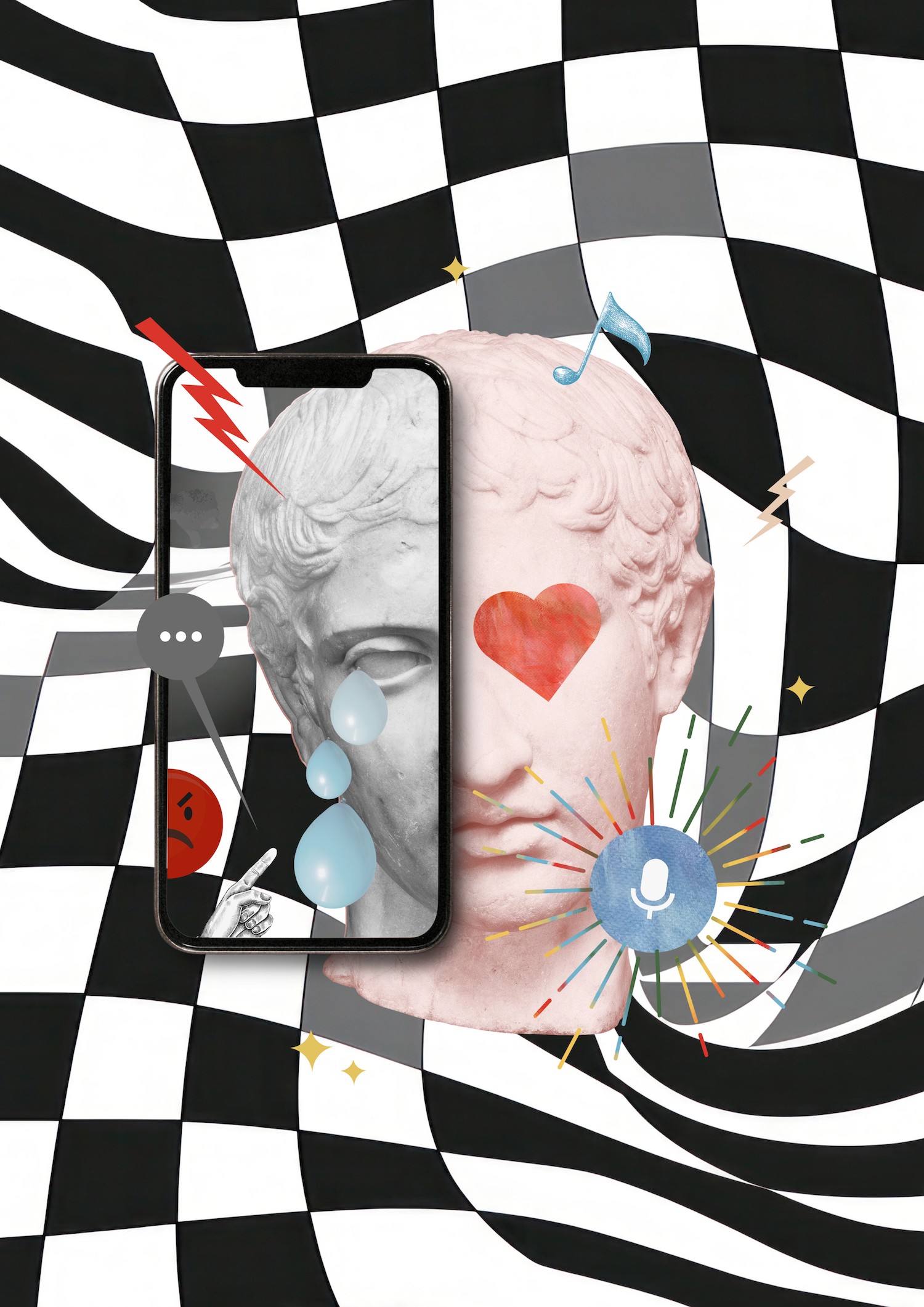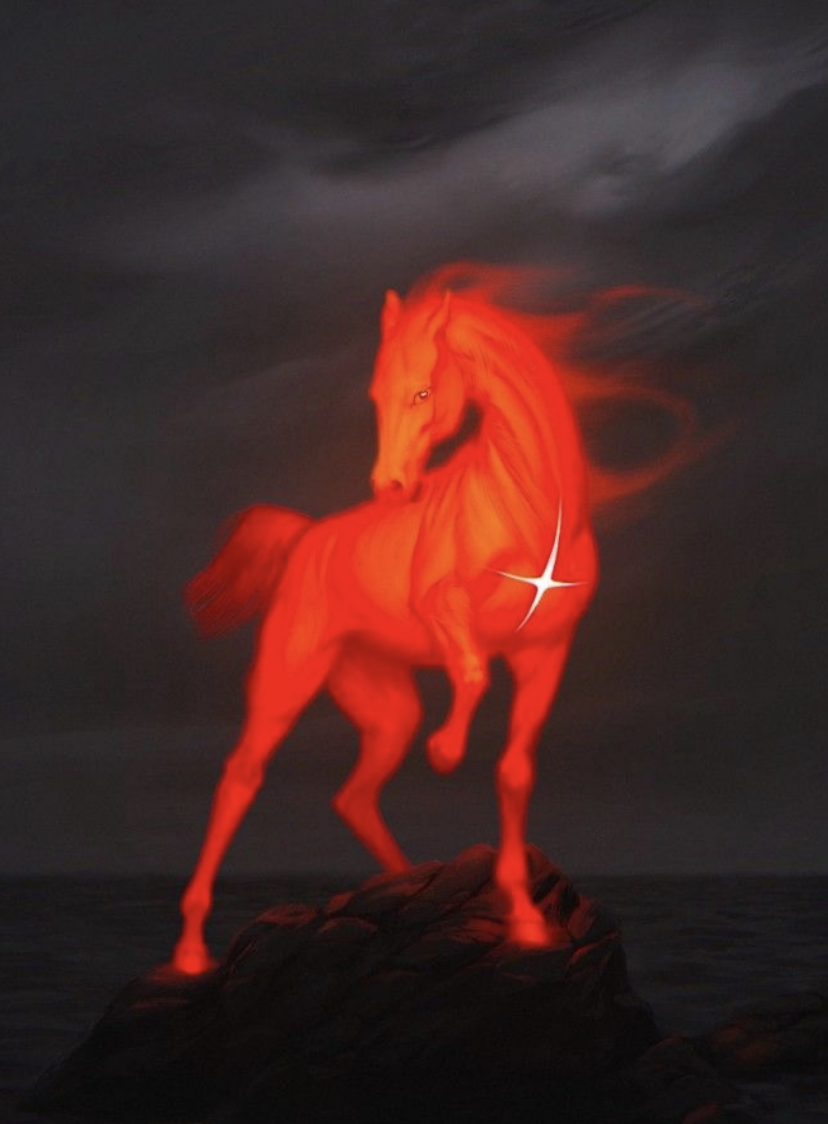When our social media game weakens, the first finger we point to is the ‘algorithm’. What’s really the deal here, and how is it transforming the way influencers view it and themselves?
We once kneeled in submission to an omniscient, omnipotent being, seeking answers and metaphysical connection. Now, we seek more, and we seek it from what we perceive as a mystical sentience: the algorithm. With 2025 bringing algorithm changes to social media platforms, local influencers are in a constant limbo of thriving and plateauing. While this fluctuation is endemic to social media and no new phenomenon, the algorithmic changes hint that these platforms will demand more, and more, and more.
By Desiree Barreto

A social media algorithm, by function, uses data and rules to rank, filter and recommend content to its users. Over the years, using the word ‘algorithm’ within the context of social platforms has transmuted to give it almost human-like perceptive and sensate capabilities. Through the mythologization and personification of the ‘algorithm’, we’ve fortified it as a digital power structure, and post-capitalistic worry. Ultimately, what we’re battling is a constant feedback loop of data being fed to the algorithm and that data being spat back at us through a curated user experience— a digital photosynthesis. To eat, you must constantly feed and enrich the almighty algorithm. To climb up the food chain, you must go just a few steps further.
In September 2024, YouTube’s annual event “Made on YouTube” spotlighted new features intending to strengthen community engagement and augment the quality of content on YouTube. Two notable features include “Hype”, a new button aimed at boosting small to mid-size creators through a leaderboard and a new user interface (UI), organising creator’s content like a streaming platform, well played given YouTube edging out Netflix and its competitors for binging and streaming according to Nielsen’s 2024 ‘The Gauge’ report. While YouTube has always demoted low-quality content, the nascent UI will require a commitment to high-production storytelling in order to see success on the platform. And though ‘Hype’ has compassionate intentions, it concretizes that the YouTube algorithm itself prioritizes larger creators, and this feature could be a way to combat it.
Over at Meta, Instagram is prioritizing niches. The way that its algorithms can curate your feed is by categorizing content based on topic. With Instagram’s AI enhancements facilitating the process, it’s never been more important to have hyper-specific content that artificial intelligence can pick up on. Here lies the Catch-22: for years, creators have been adopting cookie-cutter formulas to be swept by the ‘algorithm’ current, homogenizing content and making the bandwagon effect, not just an effect but a commonplace for content. Now, creators will be forced to pivot and narrow down on the type of audience they’re appealing to, while still sparking bounts of engagement. If we were on about ‘survival of the fittest’ before, the new changes call for a higher superlative. For Imaginary Friends (IMFR), a digital talent agency in Dubai, their CEO Jessica Cox says this is a welcome change, “They align with how we have already been navigating the internet with our creators. IMFR’s casting lens naturally leans on the power of specialization. By doubling down on individuality and well-defined niches, our influencers can continue to stand out in an oversaturated market.”

While these demands bask a 9-to-beyond-5 commitment on social media content, the wealth of the region allows local creators to play more gracefully with the cards they’ve been dealt— especially for the influencers in the UAE and Saudi Arabia who have the socioeconomic leverage that can make content creation just a little easier. This is not to negate the strenuous work of social media, but rather to acknowledge with humility that those who have more social mobility have a better chance at aceing the content game.
Even though an influencer clad with their conjoined-camera iPhone and film degree, hopping from one brand activation to a hyped-up café is hardly an authentic display of livelihood, part of why the region follows influencers is for their eventful days and consumerist indulgence. Undeniably, we have a new form of parasocial relationships, less in appeal of the people on the screen, but more to their content and lifestyles, as followers live vicariously through these influential figures.
With engagement now triumphing metrics once prized like follower counts, it seems content creators will have to capitalise on the voyeurism of their lifestyles, entering a heightened stage of the social media panopticon. Here, the negotiation between what audiences can binge on and what the algorithm can continue to push is a critical order for influencers, demanding social strategies that are always in flux. “Brands and creators must adapt proactively and swiftly to avoid the homogenization of content. These algorithmic shifts discourage repetitive approaches, instead promoting an organic evolution in how we communicate while still demanding originality in what we communicate. This pushes brands to remain agile and relevant rather than taking a “wait-and-see” approach until content styles and trends are tried and tested, as has been common in past years.”, Cox adds.
Ultimately, this inflexion point asks for the term ‘influencer’ to erode, in favour of ‘creator’— one that confines its freedom to the power structures of the algorithms, in a Michel Foucault fashion. In the style of Benjamin Bratton’s ‘Reverse Uncanny Valley’, creators will have to get used to seeing themselves through the eyes of the algorithm and content-ify their sense of self and lives to make it in the volatile industry.
We’re still answering to the algorithm, and a step beyond that. Now, we have to sell ourselves to the nth extreme and wrap it up with a bow on top. The algorithm is not the mythical entity we think it is, but when we call out to it to pick the fairest of them all, we allow it to position itself with a far greater power in our lives than it needs to be.
.png)
.png)




.png)